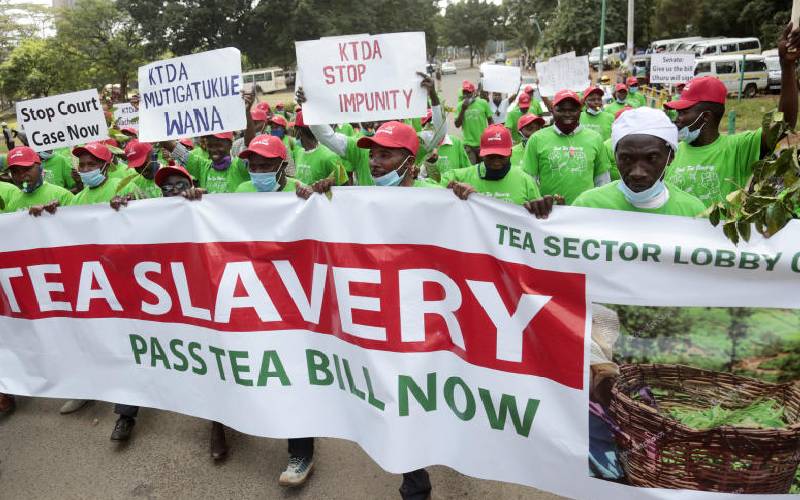×
The Standard e-Paper
Fearless, Trusted News

Tea farmers stage a protest at Uhuru Park in Nairobi in December 17, 2020. [Boniface Okendo, Standard]
Multinational tea companies have won the first round of their battle to stop the introduction of levies on their produce after the High Court suspended some sections of the Tea Act.